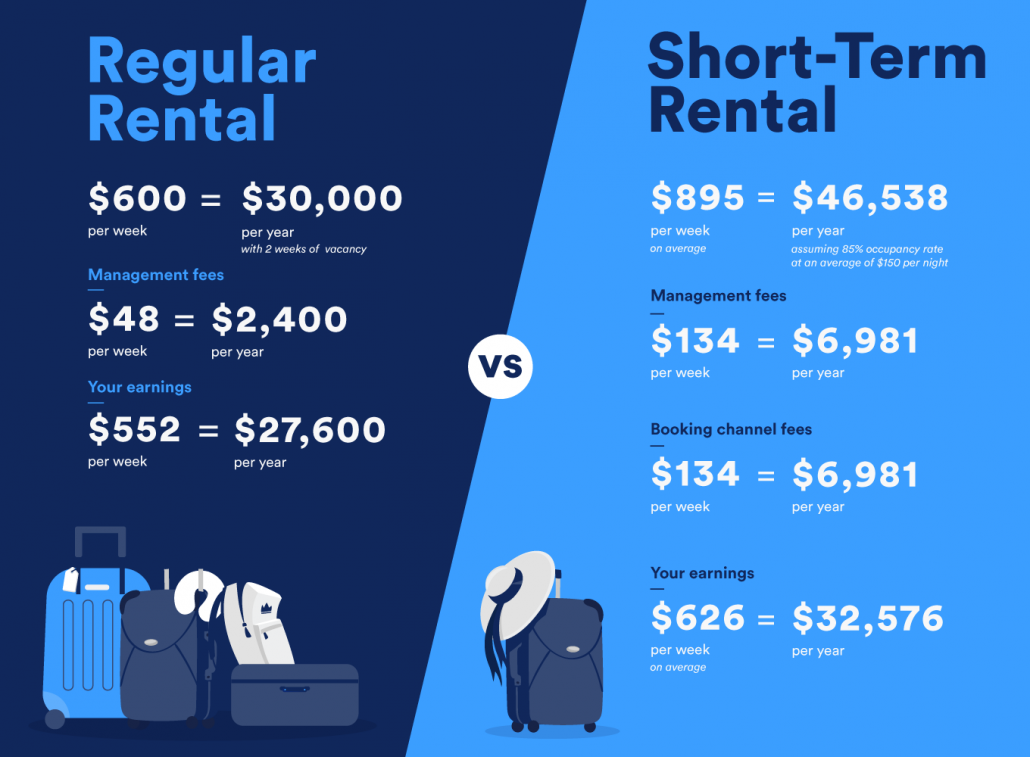This is a guest post by Stefan Nikolic, Founder & Managing Director of Zodiak, a short-term rental property management company based in New Zealand.
When it comes to earning passive income on your Auckland-based investment property, there are two main options: regular rental (where you rent out your property to a tenant for a fixed length of time) and short-term rental (where guests can book your property on websites such as Airbnb and Booking.com for stays as short as 1 or 2 nights). But which option should you choose for your property, and why?
For certain properties, a short-term rental will definitely result in a higher yield than a traditional one. While Ponsonby, Mount Eden, Grey Lynn, Parnell are all great short-term rental suburbs surrounding Auckland, the best for securing high ROI is the CBD, and particularly The Viaduct area.
Compared to traditional leases, properties in this area can easily earn 50% more income when renting out properties for the short-term. Let’s look at an example comparing the earnings of a quality one bedroom apartment located in The Viaduct (these figures are based on an actual apartment that Zodiak manages):

As you can see, there is an average of $74 more earnings per week ($3,848 per year) with a short-term rental business model.
Keep in mind that the calculation above does not take one-off events into account, which can bring nightly rates well above the average. Think about the upcoming America’s Cup or other major sporting events that see the entire city booked out, meaning accommodation rates sky rocket. We also didn’t include cleaning fees, as these are usually paid by the guest in full (and not the owner) when you use a professional management company.
Flexibility & Control
Apart from higher earnings, short-term rentals offer property owners more flexibility and control over their investment property which isn’t always the case with a regular rental. Some of the recent changes to the Residential Tenancies Act, for example, give more rights and protection to the tenant.
With short-term rentals, owners can simply block off their internal calendars for their own use or if they want to do some renovations without any notice. Canceling existing reservations should be avoided but it’s still possible if there is an emergency situation – canceling a tenancy agreement is certainly not easy and not always legal.
This flexibility will also benefit you if you decide to sell your property, as it can be rented out for the short-term while at the same time a realtor is advertising as vacant. This will increase your pool of potential buyers as well as earn you income while you wait for the sale. Once sold, you can simply block off the online calendar from the settlement date to stop further bookings!
Take It A Step Further
Another great option is to introduce flexible inventory into your business model and combine short-term with mid or long-term lets. Try renting out your place to a tenant for extended stays during the winter months (perhaps the slow season), and then listing it on Airbnb during the summer months when demand is higher. This can be a very effective strategy and should work extremely well in places where seasonality has a strong effect on demand.
In conclusion, there are many benefits to renting out your investment properties in the short-term rental market. Your local Airbnb property management company will have more information on what kind of properties work well in your area, and how you can improve your offering to make it more attractive to guests as well. Good luck!